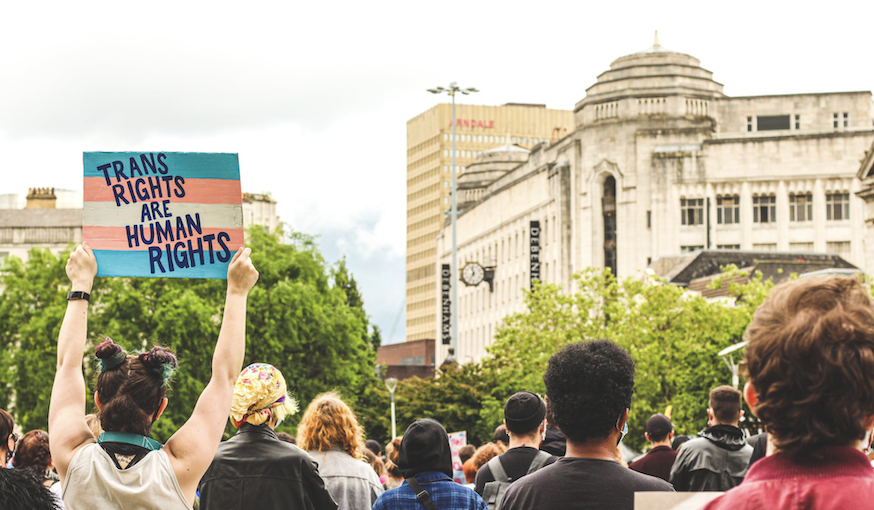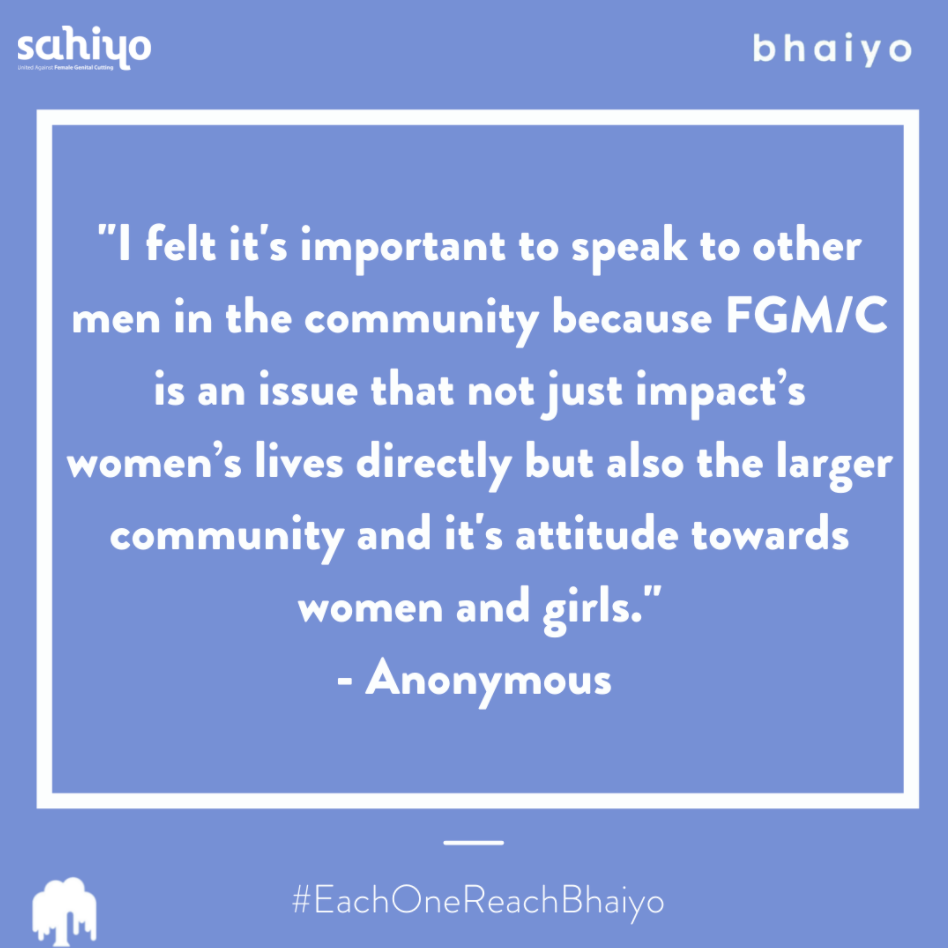Gender-Affirming Treatments are not Female Genital Cutting

By Hunter Kessous Female genital cutting (FGC), which is the practice of removing or harming the female genitalia for non-medical reasons, is a human rights violation recognized by the UN. Right now, legislators in Texas and Idaho are looking to use pre-existing bans on FGC to block transgender youth from receiving life-saving, medically necessary gender-affirming treatments. This is a discriminatory action that has no basis in the crucial work to end FGC. Gender-affirming care can include social interventions, pubertal suppression, hormone therapy, and gender-affirming surgeries. Social interventions are typically the first step; use of a new name and pronouns, wearing different clothing, and engaging in new activities are often a part of this process. Pubertal suppression is a method of delaying puberty, and hormonal therapy causes secondary sex characteristic development that aligns with one’s gender. Both are reversible and associated with better mental health outcomes for transgender youth. Gender-affirming surgeries, such as mastectomies and vaginoplasty, are irreversible treatments performed on older adolescents who have shown a consistent gender identity and have stable mental health and parental support. Research has shown that these treatments lead to decreased rates of depression, improvement in psychosocial functioning, and minimal long-term side effects. Transgender and nonbinary adolescents experience anxiety, depression, and suicidal ideation at higher rates than cisgender people. According to a report from The National Center for Transgender Equality, 40% of transgender people in the U.S. had attempted suicide at some point in their lives, which is nearly nine times the nationwide suicide rate. Gender-affirming care can significantly improve this mental health crisis. Governor Greg Abbott of Texas was most definitely mistaken when he said “any type of genital mutilation is child abuse” regarding gender-affirming surgery; it is not mutilation, and denial of this care could be more accurately called a form of child abuse by failing to treat serious mental health needs. Texas has attempted to pass several laws that ban transgender youth from access to puberty blockers, hormone therapy, and surgery. Just last year, two of these bills died in session. These failed attempts have led legislatures to turn to FGC laws as a way of making gender-affirming surgery illegal for transgender kids. Idaho is taking discriminatory actions similar to Texas. Earlier this month, a bill that would amend the state’s existing law on FGC to ban hormone therapy, puberty blockers, and sex reassignment surgeries cleared a House committee. The amendment would also make it a felony for doctors to provide these services, placing physicians in the tragic position of needing to risk their medical license if they want to provide life-saving care to transgender adolescents. The senate opposes this bill, so, fortunately, it is unlikely to pass. Disappointingly, their reasons for opposing the bill are neither because they see the necessity of gender-affirming care nor because they disagree with conflating this care with FGC. Rather, they do not see the bill as necessary, as many Idaho physicians are unwilling to provide gender-affirming care anyway, and fear the bill undermines the parents’ authority to make decisions for their children. Texas’s and Idaho’s legislators justify their actions with claims that these medical interventions are similar to FGC in that they are both unnecessary. Yet, gender-affirming care has medical benefits (e.g. improving mental health), while FGC does not. In fact, FGC often leads to harmful psychological outcomes, including PTSD, anxiety, and depression. Another faulty comparison drawn between FGC and gender-affirming care is that they are both irreversible. It is true that FGC has irreversible physical and psychological harms, but this is not the case for all treatments for transgender youth. Again, health professionals consider pubertal suppression and hormone therapy to be reversible. Gender surgery is permanent, but research has shown that regrets about having this procedure are very rare. The benefits of gender-affirming care (improved psychosocial functioning and autonomy over one’s gender identity) paired with the high risk of withholding treatment (worsened mental health outcomes, suicidal ideation and use of non-prescription hormones) support the importance of providing this care. Lastly, medical care for transgender people is their choice as part of their right to bodily autonomy, whereas FGC violates a girl’s right to bodily autonomy. Minors are often forced to undergo FGC and are too young to fully understand what is occurring and give their consent. Furthermore, consent cannot be given when there is coercion. FGC often exists as a result of societal pressure placed on girls who are told FGC is necessary for them to be a woman, to be a member of their own culture and society, and to be married. Consent can not be freely given to undergo FGC, because coercion will always be a dangerous factor. It is harmful and incorrect to conflate FGC with gender-affirming care. I want to make clear that FGC survivors and transgender and non-binary people are not mutually exclusive communities. People who have undergone FGC and do not identify as a cisgender woman in particular would be harmed by legislation that defines gender-affirming treatments as FGC. To learn more about the nuanced experiences of non-cisgender survivors of FGC, I recommend Dena Igusti’s article on being a non-binary survivor and Dear Massi’s advice column for a transgender man who underwent FGC as a child.
How I took part in the Each One, Reach Bhaiyo Campaign: My experience with different Bhaiyos

By Anonymous In honor of International Women’s Day on March 8th, Sahiyo launched our campaign “Each One, Reach Bhaiyo.” During this campaign, Sahiyo encouraged community members to reach out to and educate at least one male-identifying person in their life about female genital cutting (FGC). Through this campaign we involved men in the important work of protecting women and girls. We know that just one conversation can spark a global change towards preventing the human rights violation that is FGC amongst future generations. Learn more here. Why did you want to reach out to another man in your life to discuss female genital mutilation/cutting (FGM/C)? I felt it’s important to speak to other men in the community because FGM/C is an issue that not only impacts women’s lives directly, but also the larger community and its attitude towards women and girls. It is necessary to engage with men to build awareness and take steps towards change. Women and also men need to participate together to speak out against FGM/C. My usual interactions with community members are mostly with my own family, close relatives, and men who I have come across through the matchmaking process for marriage. I have a keen interest in discussing community life, rituals, beliefs, etc. with a critical lens to understand their meaning, relevance, and history. This has been part of my upbringing and an interest during my years of formal education, particularly from the perspective of gender in society. And so often my interactions with men while meeting them in arranged marriage or dating meetings are based on these topics. What was his reaction? Was he aware of FGM/C? I happened to meet a man called Z in his early 30s who was just finishing up his residency term in medicine and was to finally start his independent practice. We had similar observations and views about community practices and were able to have open conversations on many topics. I decided to ask him if he knew about the practice of Khatna. Z had grown up and was still living in a very orthodox community environment and that was his immediate world. However, education and studying medicine had given him an opportunity to be open minded, meet people from different backgrounds, and explore beyond community life. This was something he said he valued. Z told me that he came to know about the practice of Khatna while he was in college through some posts on Facebook and was shocked to find that this was never spoken about in his family or community life. He studied about it in detail and came to the conclusion that Khatna has no medical benefits as is often told. He started being active about his views against FGM/C online and his family came to know about his stance. It created a lot of agitation in his family and he was told to suspend all his interest in speaking out against the issue. He felt that he has a lot to lose if he is publicly vocal against Khatna and decided to stop his involvement. During our discussion, I told him that because of my father’s ability to question Khatna as unscientific and unnecessary, my sister and I did not go through it while we were young. My mother and grandmothers, who had all gone through Khatna themselves, were initially hesitant to not follow the tradition. I saw my father’s position as a crucial intervention. I shared with him Sahiyo’s work and approach to engage with community members. Z was not interested in being part of any group or discussions questioning FGM/C anymore. He continues to believe in private that the practice of Khatna should be stopped but cannot afford to risk his community life. What advice would you give to others trying to reach out to the men in their lives? In my experience with speaking to men, I came to know that a few of them are aware about FGM/C due to a lot of discussions and campaigns that are now visible on social media and easily accessible. However some are also completely unaware or don’t want to broach the subject. I have noticed that men have the ability to empathise to an extent due to their own experiences of going through male circumcision. Khatna is not about preserving a tradition but a practice of violence that has a prolonged impact on many women who go through it. This does not align with the values of modern education that the Dawoodi Bohra community strives for. I would urge others to speak with men about FGM/C, and open up conversations to share experiences, facts, and outcome of research studies to help them understand better. Even if men can’t come forward openly to their own families, I believe a conversation can certainly open up possibilities for the future.
